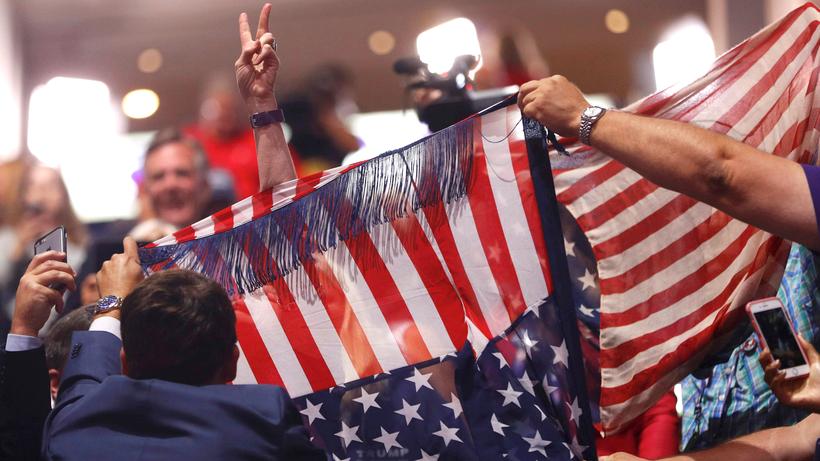
China: America’s Strategic Enemy
(Russia) on 13 July 2016
by Sergei Markov (link to original)
On Wednesday, China issued a harsh statement regarding Washington’s position on the South China Sea issue. Let us recall that on Tuesday, The Hague arbitration tribunal ruled that China has no right to make a claim to the area of the South China Sea within the so-called “nine-dash line.” After this ruling, State Department spokesman John Kirby stated that Beijing’s refusal to fulfill its obligations in accordance with the court will now be considered a violation of international law.
“We advise America to seriously think about her words and actions, to stop promoting an illegal decision, and to cease provoking incidents in the South China Sea,” stated Chinese Foreign Ministry spokesman Lu Kang, refusing to affirm The Hague court’s decision.*
Here it is important to note that the case was formally led by the Philippines, which initiated the suit. Practically speaking, it was led by the U.S., which is building up an anti-China coalition in Southeast Asia and attempting to maximize China’s isolation. The U.S. wants to subordinate China to the U.S., and it wants to get control over China’s economy, rather than allow the country to challenge America’s global dominance in the future. But in reality, in the case of this court ruling, China is right to claim that drawing borders between countries is not among The Hague’s responsibilities. Issues of borders between nations have always been dealt with through bilateral negotiations between the two states involved, sometimes with someone to mediate, but never have they been a matter for international arbitration.
And so it is clear that this conflict is for the most part entirely artificial, created by the U.S., which is using all means possible to provoke other countries over territorial divisions. For China, these islands are of course very important, since they carry with them a claim to the oil and gas fields in the region. I believe that if the Americans hadn’t interfered, then the Chinese would have long ago established some sort of consortium and, together with the other countries involved, they would have jointly extracted these resources.
In a broader sense, we are seeing the clash between a young power — China — and an old imperialist predator. In this case, that imperialist predator is the U.S., a country trying to maintain its global dominance by any means possible. Going forward, I believe that tensions between these two countries will only continue to grow. The U.S. will continue to surround China with military bases and political allies in order to prevent the establishment of an anti-American coalition with North Korea at the helm. In turn, the Chinese will expand their economic and military might, and will actively search for allies, such as Russia or even India, with whom they are trying to improve relations.
We can be sure that a major clash between China and the U.S. is still ahead of us. A clash is inevitable, since China is America’s strategic enemy, just as America is China’s.
When it comes to China’s domestic political situation, it is safe to say that it is quite stable. The Chinese economy continues to grow, though not, perhaps, as quickly as before. Moreover, China has changed its development strategy. China’s strategy for development used to be based on using cheap labor to become a massive factory producing cheap goods, but now it is developing high tech production capabilities, betting on advanced technologies and Western markets. Today, the Chinese have moved to a new model, in which the foundation of economic development is not external demand in the global marketplace, but domestic demand.
When it comes to foreign policy, China today is really rather weak. Though it won’t be easy, the Chinese need to develop a new, more effective foreign policy. The reason, in my view, is that China has a weak school of diplomacy. In addition, China has no historical experience interacting with other countries on an equal footing. China has always either been a total superpower, or (since the 19th century) has faced the aggression of other countries that eventually tear China to pieces. Now China is trying to make nice with any country that is not friendly with the U.S., but at the same time, Chinese strategy must be structured around ensuring China’s foreign politics do not interfere with the development of her domestic economy.
The views of the author may not reflect the position of the editor.
*Translator’s note: The original quote, translated from the Chinese, is: “We advise the U.S. to think deeply about her words and actions, to stop promoting anything regarding this illegal ruling, to stop inciting trouble regarding the South China Sea issue, to stop words and actions that harm China’s sovereignty and security and exacerbate tensions in the region.”


